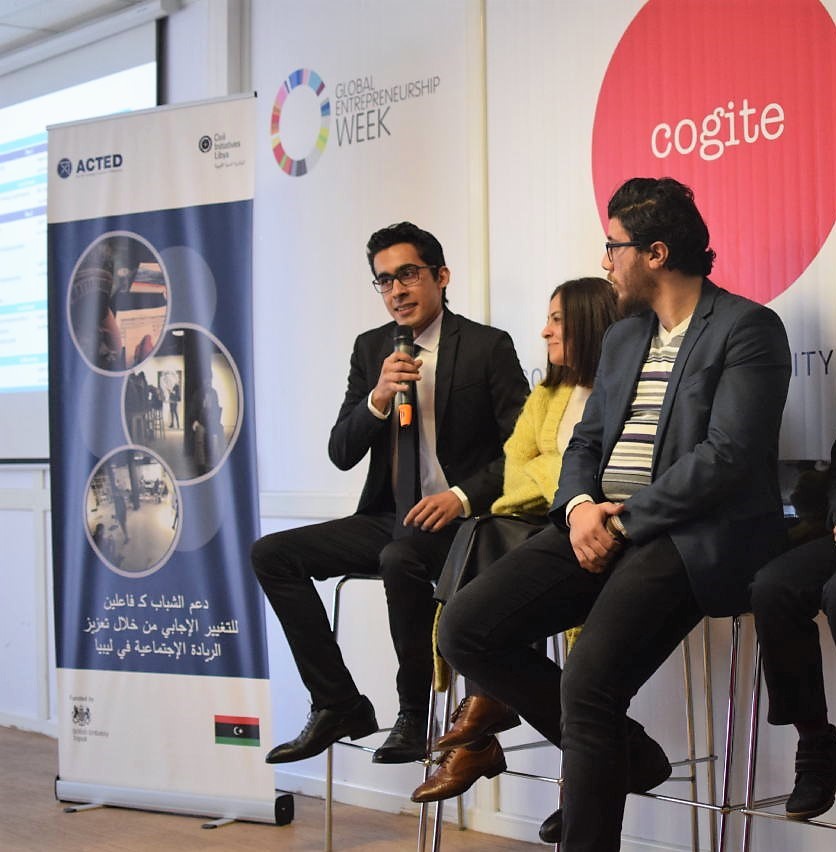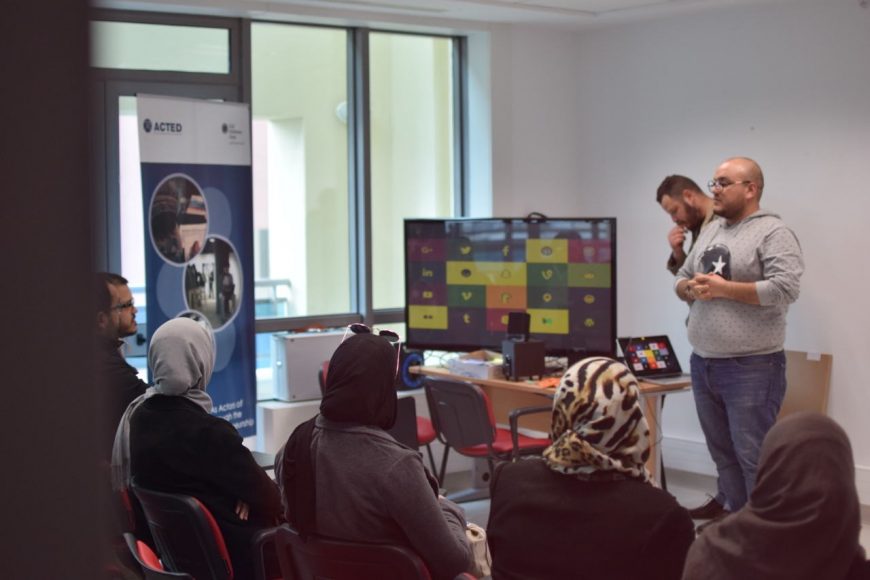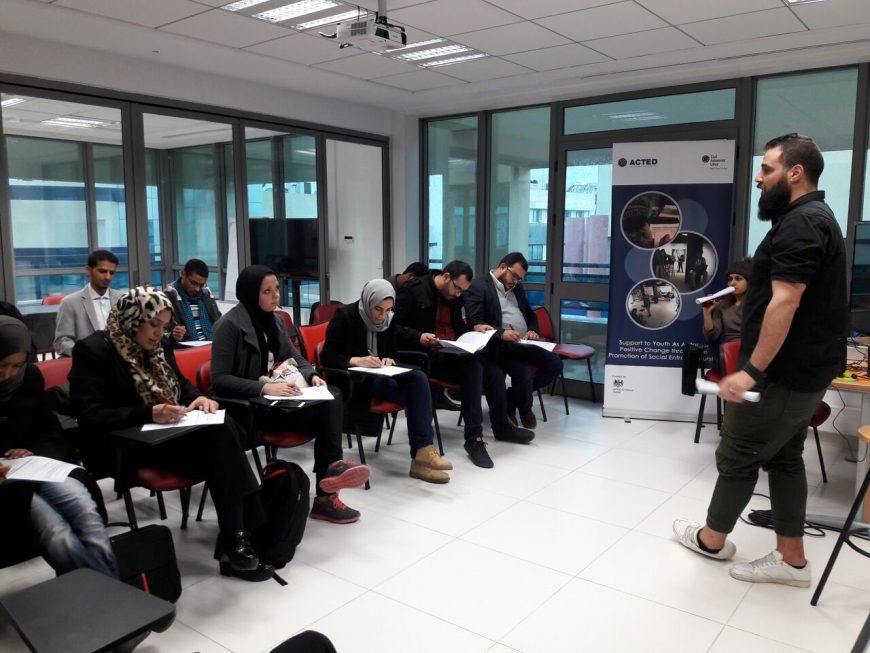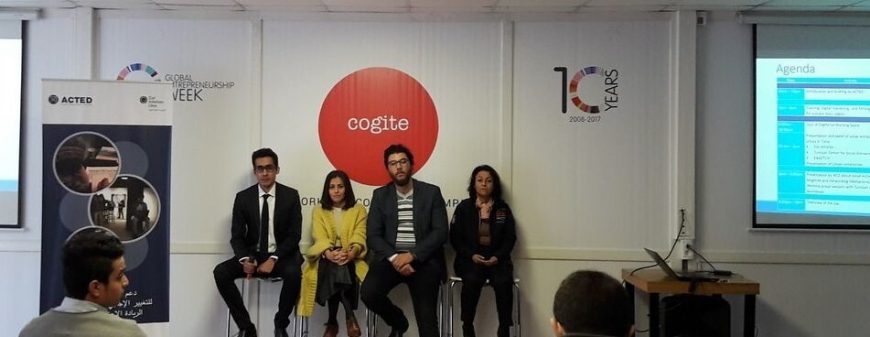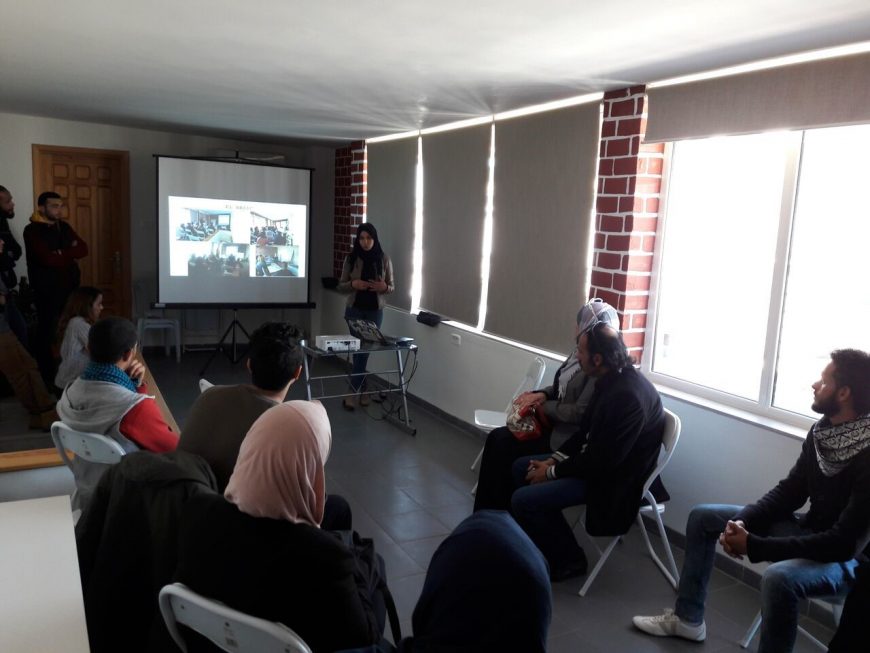Since 2011 Libyan youth have been actively interested in participating in societal affairs in ways that have never been attainable before. Concepts such as civil society and social entrepreneurship may not be new to the Libyan youth scene, however, they are certainly not as recognised or as practised as they should be. Libya’s youth have shown initiative in starting new and innovative projects shifting farther from public sector-oriented jobs and aiming to support themselves while simultaneously impacting their society positively. ACTED supported young Libyan entrepreneurs in managing and growing their social businesses in order to promote economic development and social entrepreneurship in Libya.
Business development and capacity building training
ACTED aims to empower the Libyan youth by encouraging social entrepreneurship and supporting social entrepreneurs to develop their business through sub-grants and capacity building training. Young entrepreneurs from all over the country applied to ACTED’s programme and submitted their business plans for projects with social impact.
Six social business initiatives were selected outside of 150 applicants. The six entrepreneurs, three men and three women from Sabha, Benghazi and Tripoli, have been participating in ACTED’s coaching activities on technical managerial skills. In addition, ACTED organised a study tour in Tunis that entailed visits to co-working spaces, incubators and attendance of workshops. The main goal of this study tour was to learn more about what social entrepreneurship means in Tunisia and better define the concept in Libya through their own work.
The tour was also an opportunity for the Libyan social entrepreneurs to share their work and experiences with their Tunisian counterparts and build joint strategies for the future. The principles of social business already exist in Tunisia, and are inspirational for neighbouring Libya, which has similar experiences with regard to youth.
Educational videos have been disseminated to promote the concept of social entrepreneurship, with testimonies and success stories from the entrepreneurs.
Six successful Libyan social businesses in focus
The six projects that participated in ACTED’s programme featured the aspects of involving technology to help other people.
Homemade – The ‘Homemade’ project aims to empower women economically by providing capacity building and business development training. Instead of working from their home, women expand their businesses and benefit from marketing techniques to expand their network.
Banat Tech – Banat Tech aims to inspire women to become contributors in technology, not just consumers by involving them in smartphone and laptop repairing. Beyond women empowerment, this also contributes to reducing the shame barrier between women and men. Banat Tech initially started as a maintenance centre, and later expanded from service to training centre. They now provide capacity building for women in the field of IT and access to new technologies, while promoting freelancing.
Palencia – Palencia, a social business in the field of medical services, provides primary health care services and medicine through home-delivered medical services targeting the eldery and disabled with affordable fees.
Al Etkan Al Momaiz – A tech team in Sabha that stated a tech space that provides trainings and tech services for and by the youth. It features programmers, technicians, training staff and web designers. They also hire legal and marketing advisors.
Al Naqaa Recycling Company – A recycling company in Sebha that collects used plastic and turns it into pellets for re-use and sells these pellets to local suppliers.
Inspire Education – Lastly, Inspire Education provides educational services in an innovative way for children and teenagers with a focus on technology and software. Their aim is for children to become more aware and educated in the fields of science and technology at a younger age.
This project proved successful as it created networking and knowledge sharing opportunities, incentivizing youth to learn the concept of social entrepreneurship, being able to define it and finally implement it in Libya. Additional support was given to the enterprises as they were trained to utilize social media in order to market their businesses and learn skills to gain a wider following on social media platforms. This project was funded by the Foreign Commonwealth Office under the objective of promoting inclusive and sustainable growth.
